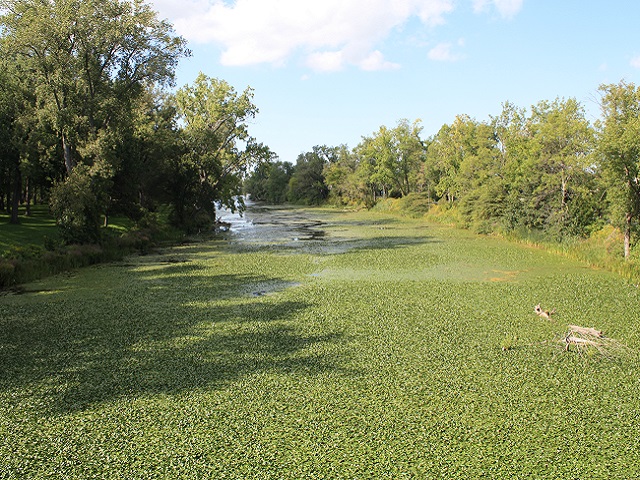
Zebra and quagga mussels create water quality conditions that are ideal for growth of potentially toxic cyanobacteria blooms, also known as blue-green algae.

Water chestnut can completely overwhelm a waterbody, drastically changing the aquatic environment and making recreation impossible.
Aquatic invasive species have caused major social, economic, and ecological problems in many invaded waterbodies. In Vermont alone, over a million dollars are spent annually on spread prevention, monitoring, and control projects for exotic aquatic pests.
Several studies have quantified the staggering effects of aquatic invasives, including social, environmental, and economic effects, at various scales. The National Center for Environmental Economics' review of literature assessing the economic impacts of aquatic invasive species cites articles that estimate the national cost of aquatic plant management alone may approach $10 billion, and that the international cost of aquatic invasives for six of the world's developing nations may surpass $300 billion!
Invasive species can have deleterious effects on all environmental and economic aspects of aquatic systems. Lakefront home values can fall dramatically because of invasive species invasions. A recent study quantified those impacts for selected Vermont lakes, and demonstrated the relationship between invasive species and reduced property values. Zebra mussels are extremely detrimental to native mollusks, and can also dramatically reduce the quality of fisheries due to their ability to remove energy from the aquatic food web and sequester it in their own biomass. Additionally, they wreak havoc on infrastructure: according the U.S. Fish and Wildlife Service, a zebra mussel infestation in the Columbia River could cost hydroelectric facilities alone over $250 million annually. That study also points out the threat of Asian carp to the $7 billion Great Lakes fishery, and how roughly $80 million was spent in one year just on spread prevention efforts to keep the prolific fish from invading our nation's largest lakes.